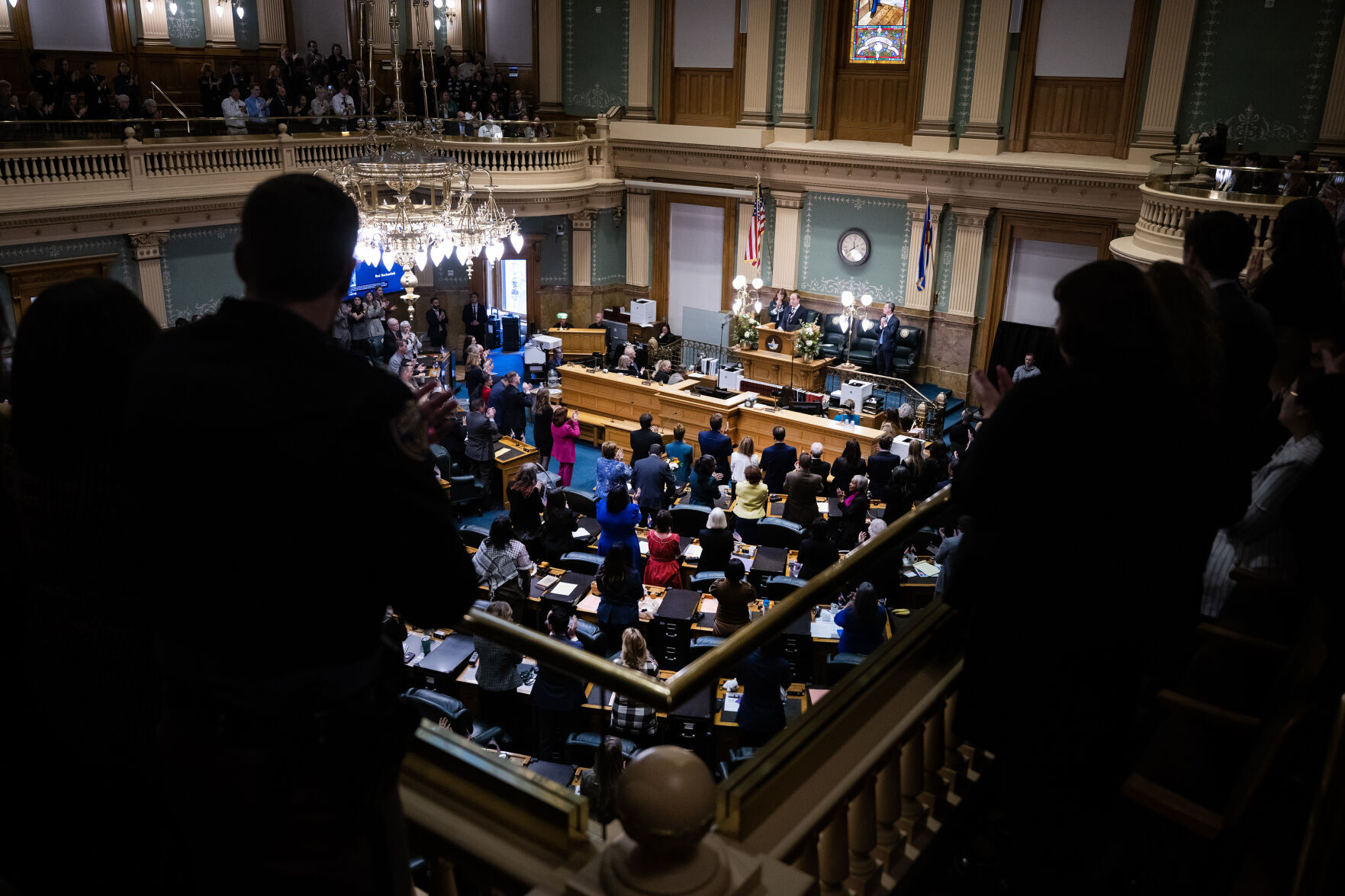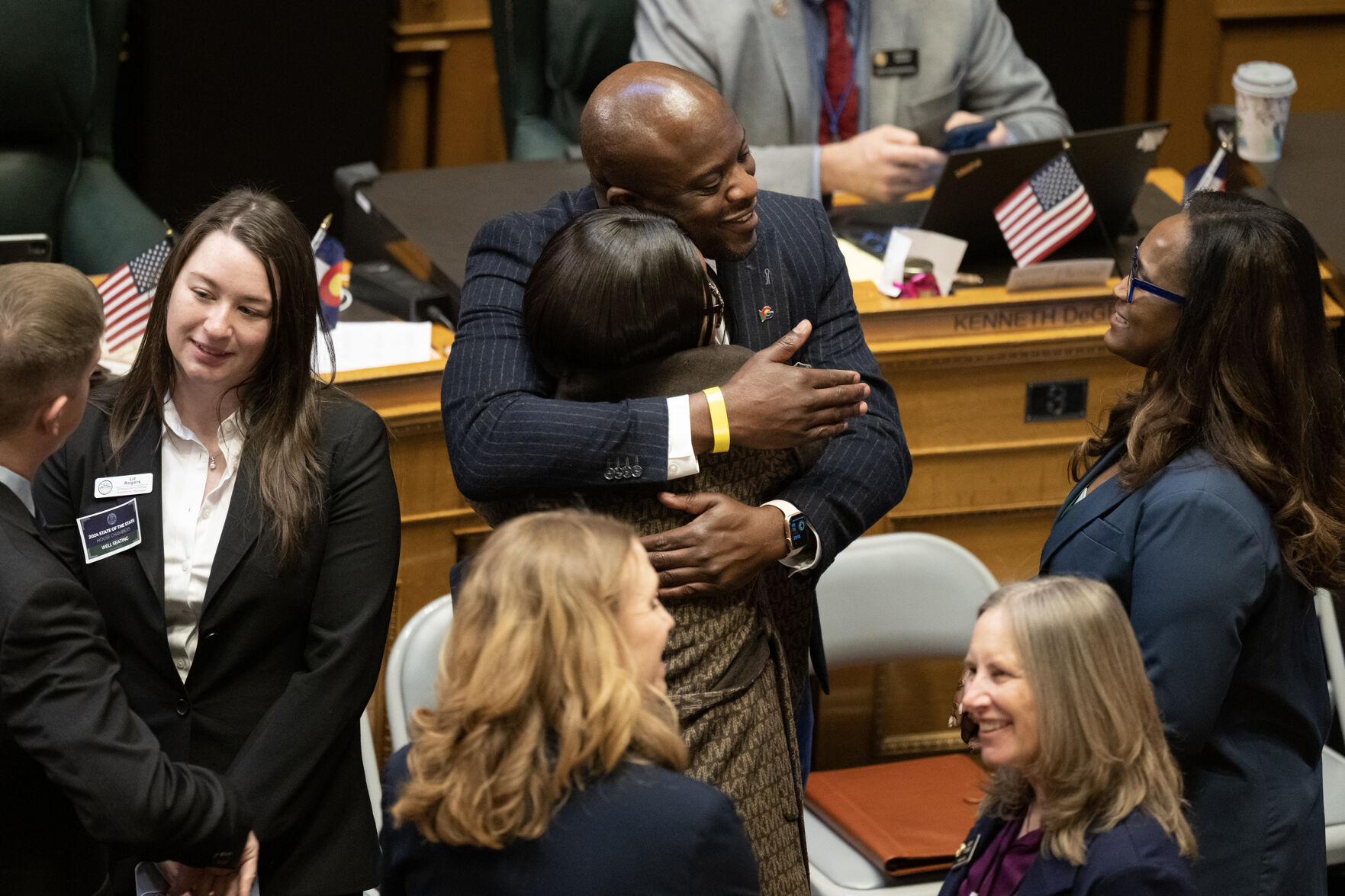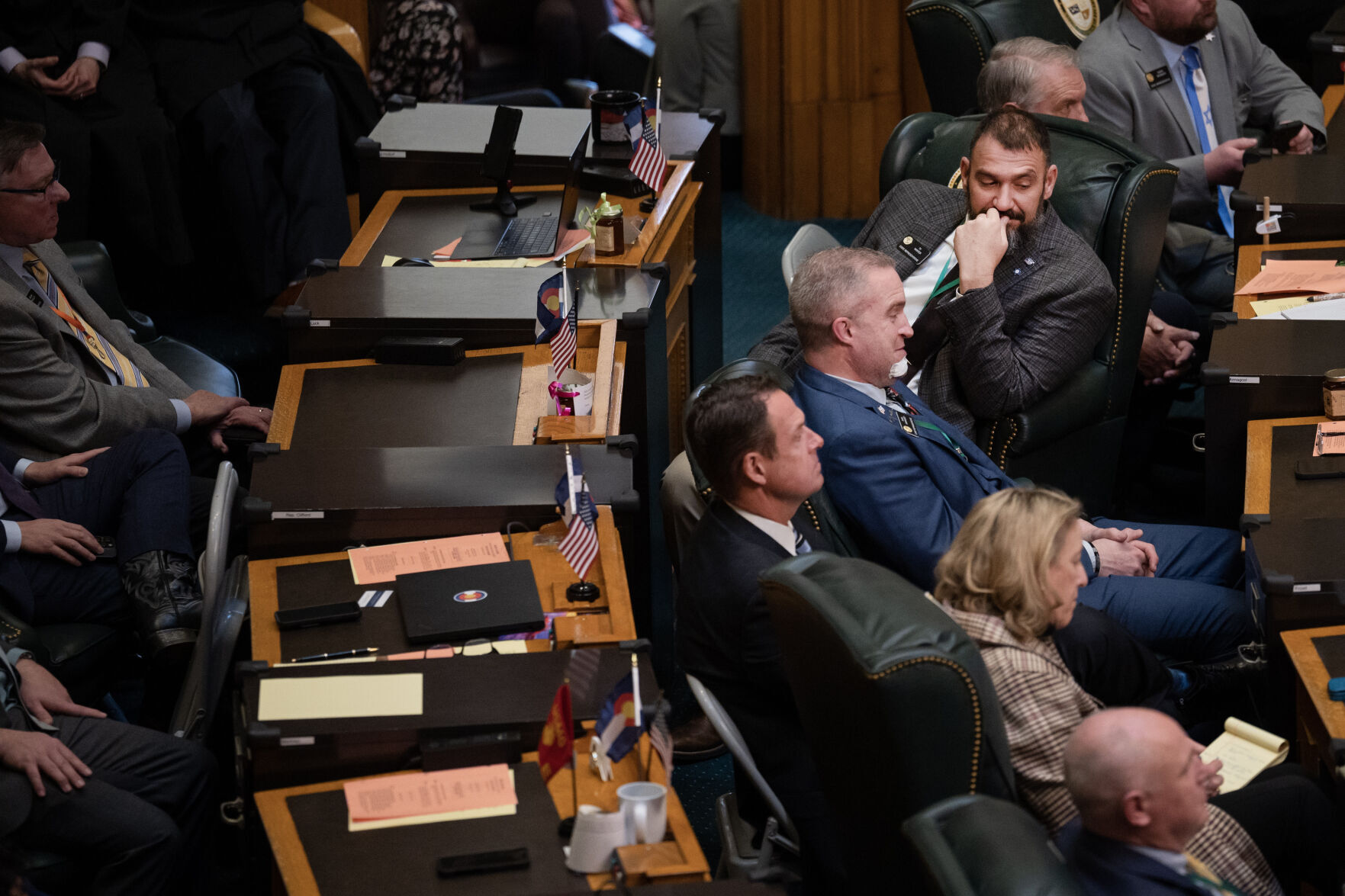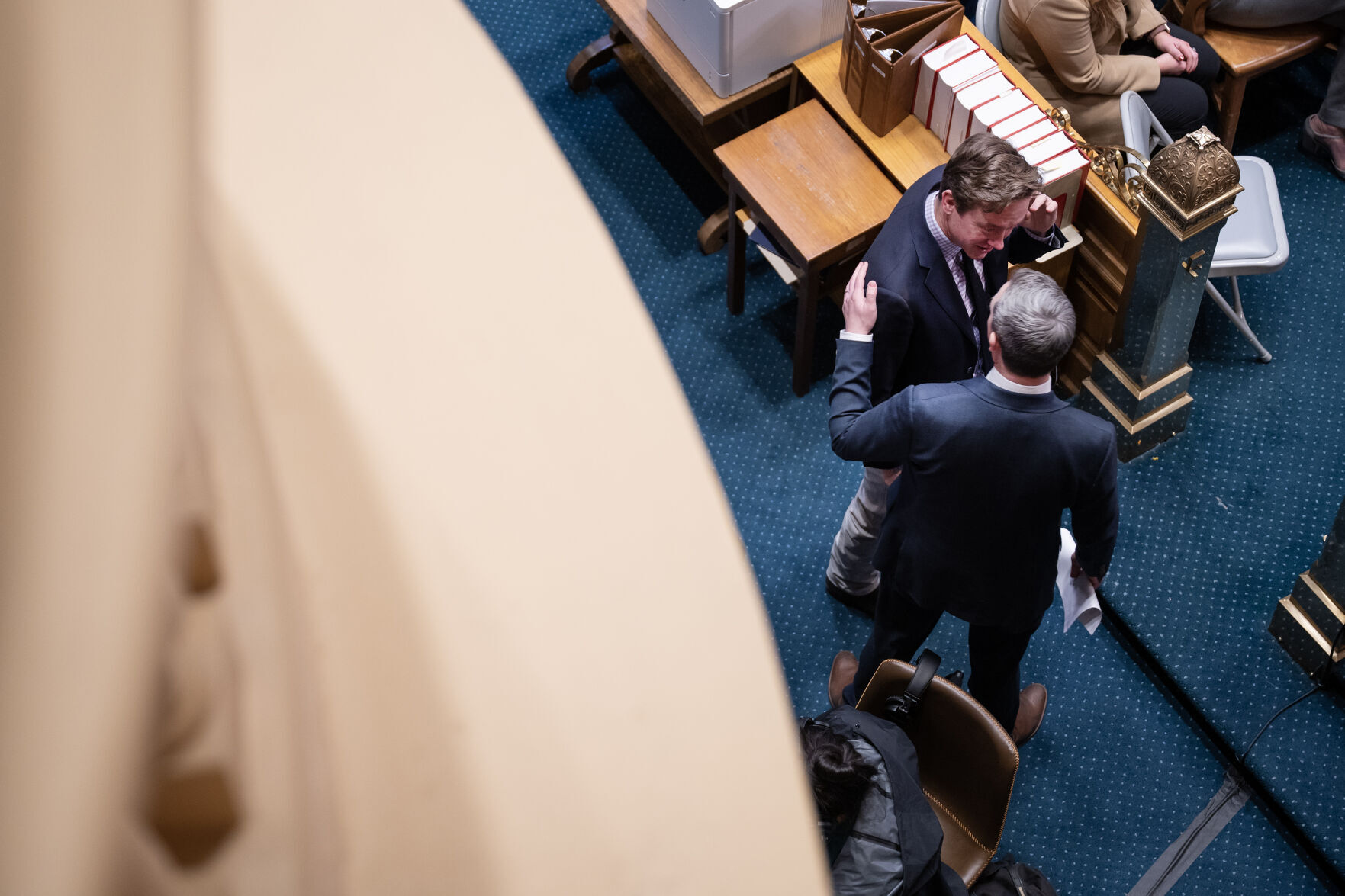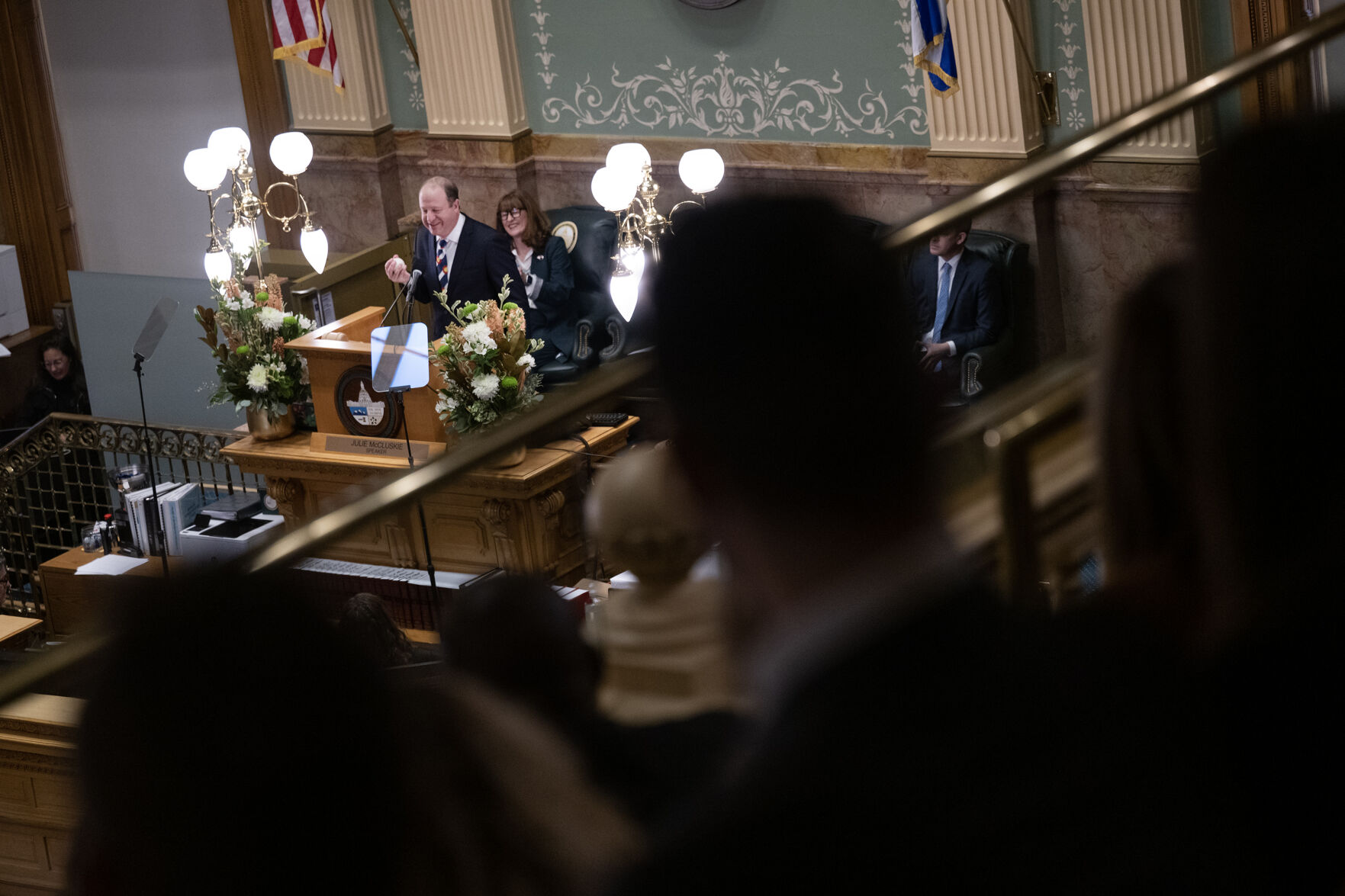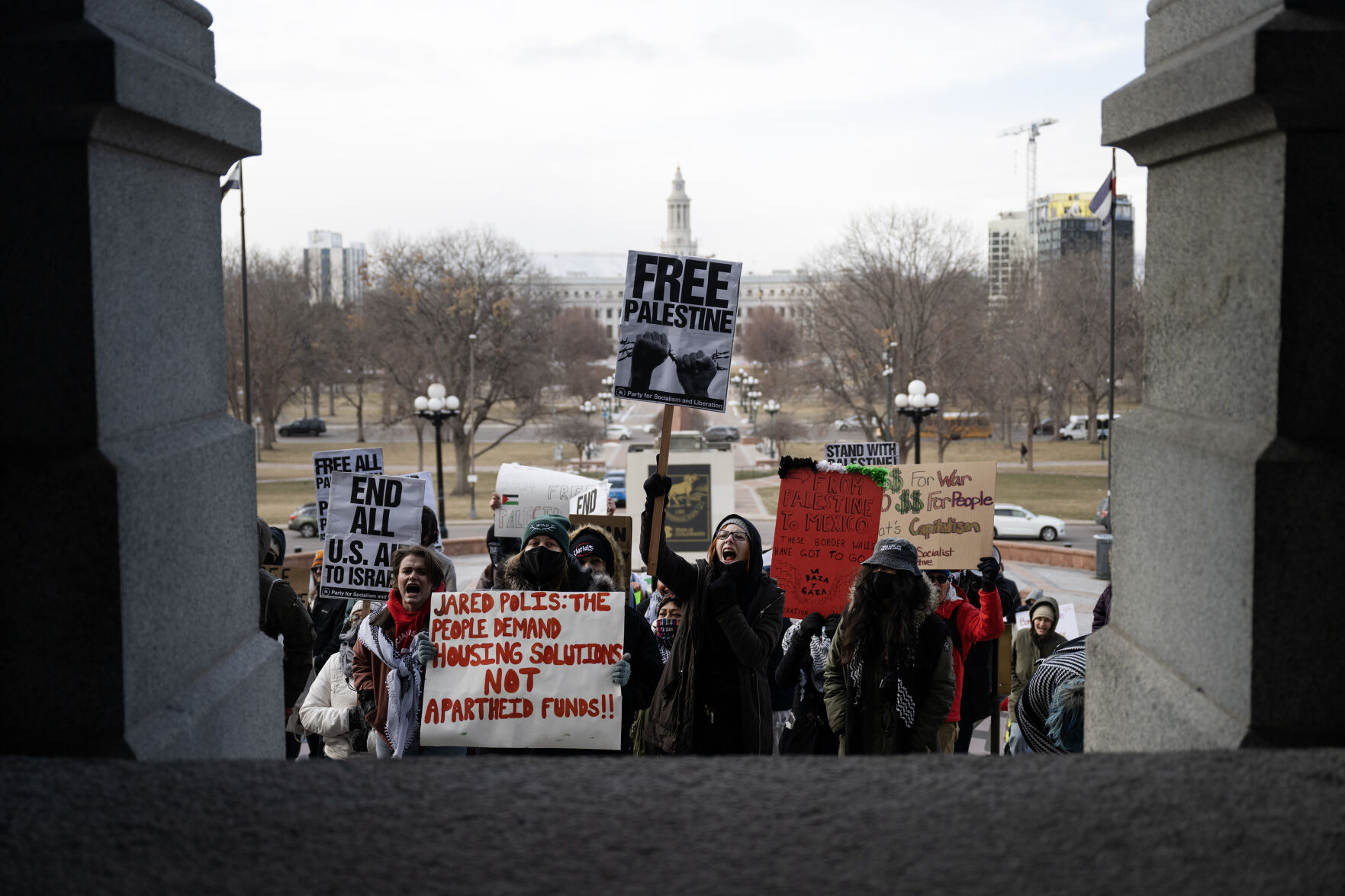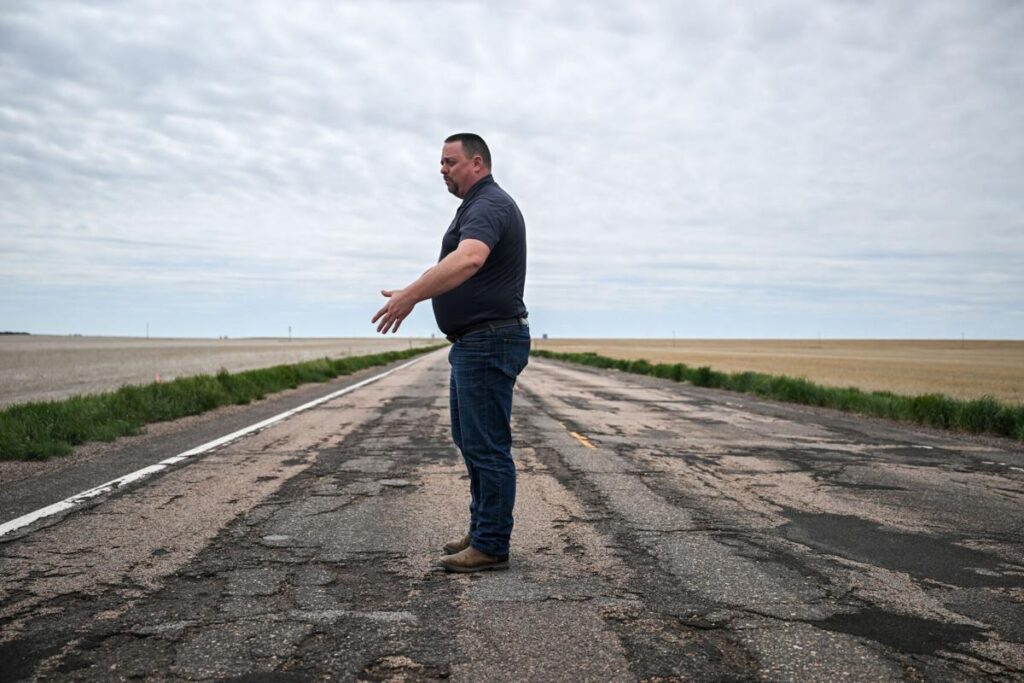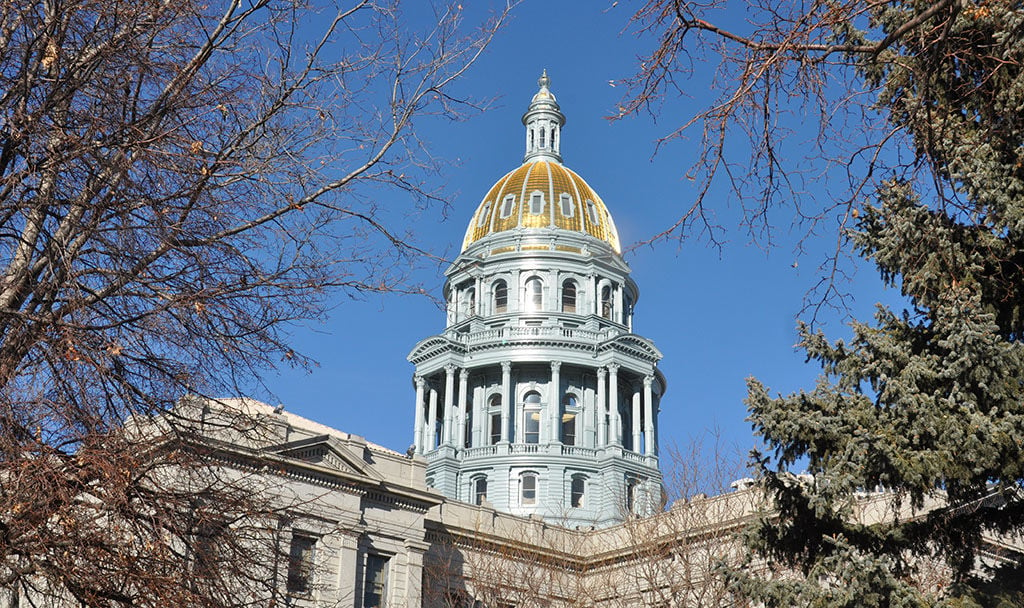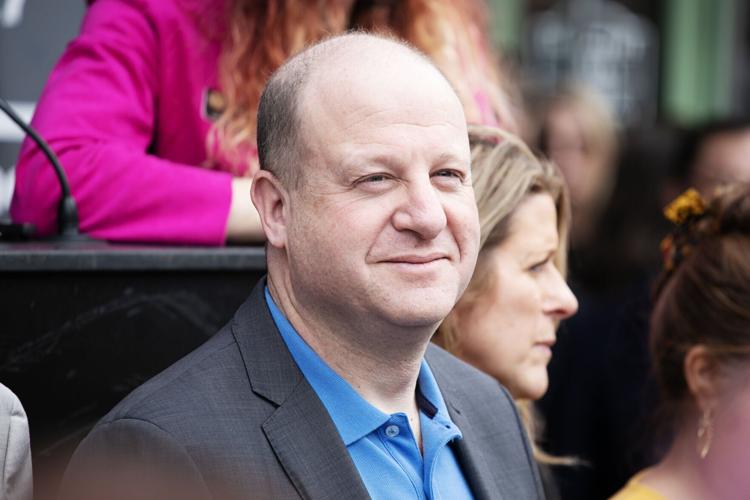Gov. Jared Polis homes in on Colorado’s housing woes in state address
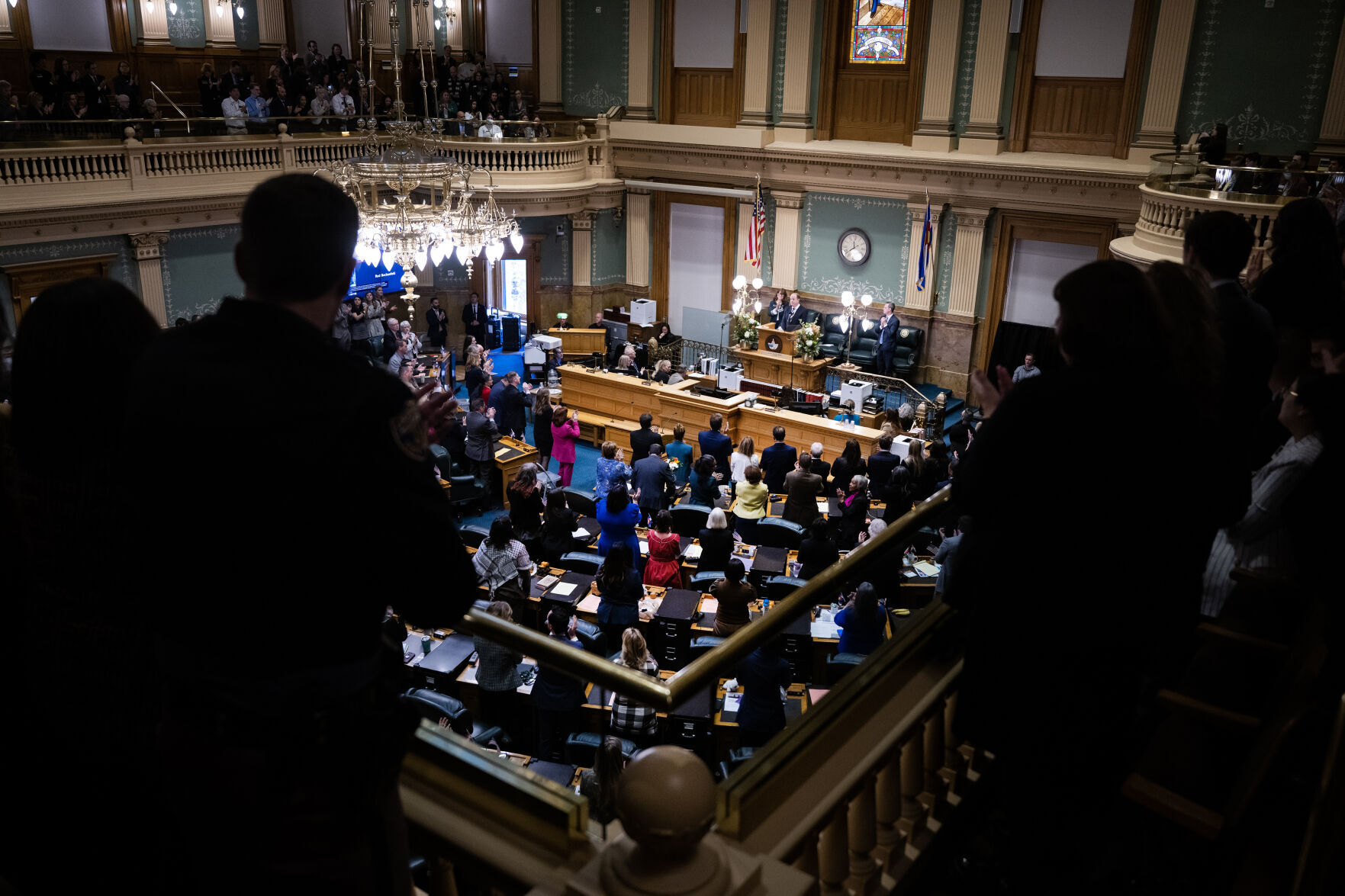
Gov. Jared Polis on Thursday outlined the challenges ahead and his priorities for the new legislative session, and while he began with an upbeat note about how Colorado blazed new trails, the governor warned of the “hopelessness and despair” permeating housing.
Colorado lacks at least 100,000 housing units, says a study, which also notes that 80% of Coloradans live in a county with an aggregate housing supply shortage. Over the years, the study adds, Colorado has become one of the most unaffordable states for renters in the entire country.
“There is a real sense of hopelessness and despair in our state around housing that’s on par, in many ways, with how people feel about the divisiveness of our national politics,” said Polis, who gave his sixth State of the State address and listed strategies he would like lawmakers to adopt.
It’s the same issue that preoccupied the governor and lawmakers’ time last year. But unlike 2023, when his land use proposal went down in flames on the last day of the session, Polis struck a slightly more bipartisan tone, saluting mayors in Denver, Aurora, Fort Collins and Colorado Springs for their efforts to reduce homelessness and improve housing availability.
Polis noted a “listening” tour last year, in which he said the top issue for everyone is the cost of housing. Parents fear their children will never be able to own their own home, while older Coloradans won’t sell their homes because high interest rates, rising home values and the property tax situation mean they can’t afford to downsize, he said.
Polis advocated for several policies, notably the portability of the Senior Homestead Property Tax Exemption, under which residents 65 and older who have owned their dwellings for at least 10 years are allowed to claim an exemption of $100,000 on home values, with the property taxes for that valuation reduced accordingly. But current law does not allow the exemption to be portable – once the owner sells the home, the clock starts over.
Under a portability concept, however, seniors could buy another home and take that exemption with them.
Polis also advocated for more construction of accessory dwelling units or “granny flats” or casitas, which he said would increase the housing stock.
He also said he would support measures that reduce the cost of housing and encourage innovative approaches, such as new financing strategies, easing parking restrictions, tackling liability costs for multi-family condo construction and reducing the cost of fire insurance.
The governor voiced support for a measure introduced Wednesday to end “discriminatory occupancy limits” that bar unrelated people from living together in rental units.
The challenge is also about transit, Polis said, adding he wants to see a Colorado where people can live in affordable homes near accessible and reliable transportation options, such as buses, bicycles and walkable neighborhoods. He pointed to Olde Town Arvada and downtown Fort Collins as examples of downtown centers built around business, transportation and housing.
However, his speech didn’t address housing solutions for rural communities, where experts point to big problems, such as credit, higher construction costs and older housing that requires safety retrofits.
A plea for civility
In a nod to what has become a common theme in the first days of the 2024 session, the governor, too, pleaded with lawmakers to be civil with each other.
“As we prepare for the year ahead, know that the state of the state is strong,” Polis said at the conclusion of his nearly 57-minute speech. “When we work together, and disagree better, nothing is beyond our reach.”
“This isn’t just some feel good initiative or hollow exercise. Our very democracy depends on people being able to disagree with one another – passionately, emphatically – and still being able to work together with mutual respect and dignity. When that is no longer possible, when policy arguments become personal attacks, and when people start to paint the other side not as colleagues who disagree, but as enemies, we are entering dangerous territory.”
Noting the recent increase in hate crimes, both in Colorado and the nation, the governor cited the Anti-Defamation League, which recorded a 360% increase in hate crimes nationwide.
“The rise in antisemitism, Islamophobia, and hate in all forms is unacceptable in Colorado,” he said, drawing a rare bipartisan standing ovation.
Education and health care
On education and healthcare, Polis spoke of efforts to boost summer lunch programs, and taxpayer-paid, full-day kindergarten and half-day preschool education. He noted efforts to boost math skills and called on lawmakers to take the next step to improve achievement in science education.
But it was the governor’s mention of the state finally paying off the 14-year debt to K-12, known as the budget stabilization factor, that once more drew all lawmakers to their feet.
In his 2024-25 budget proposal, the governor is seeking a final payoff of the $141.2 million debt to K-12. That debt just four years ago stood at $1.05 billion.
Meanwhile, the governor lauded reduction in health care costs through the state’s reinsurance program and the Colorado Option, as well as capping the cost of insulin. He noted last year’s efforts to cap the cost of EpiPens, a lifesaving medication for people with severe allergies.
In fact, while a majority of health insurers are poised to reduce premiums this year, that doesn’t mean insurance costs are going down. Those who buy their health insurance on the individual market will pay about 9.7% more in 2024, according to the state Division of Insurance, which finalized its rate review for health insurance premiums for 2024. In the small group market, which applies to businesses with fewer than 100 employees, premiums are expected to increase by 8%.
In the area of public safety, the governor noted the 2023 legislation to reduce auto thefts. He claimed auto thefts are already dropping as a result of the legislation.
Polis also noted the December release of 10 wolves into Grand County. He said that progress needs to be “protected” by investing in “non-lethal conflict minimization to help our farmers and ranchers thrive.”
On taxation, the governor signaled support for decreasing the state income tax, a call he has made in virtually every annual address. While Republicans cheered, Democrats sat in stone silence, a sign that Republican measures to reduce the income tax are unlikely to succeed this year.
“Cutting the income tax rate isn’t a panacea,” Polis said, “but to spur continued economic growth, it should be a significant part of progressive reforms to TABOR refunds.”
After the speech, Polis told reporters the changes he’s advocating for would include mechanisms like the Earned Income Tax Credit and a child tax credit, both of which, he said, would make Taxpayer’s Bill of Rights refunds “more progressive.”
In his 2023 address, Polis had mentioned water a record 32 times. This time, he gave only a brief nod to the issue. Polis mentioned the state’s $300 million investment in the Colorado Water Plan and a commitment to “aggressively defend Colorado’s interests and rights in the Colorado River negotiations.”
In talking to reporters, Polis said he talks about water in the context of housing and sustainability, and that dwellings close to job centers would be a game changer for water conservation.
“We’re very serious about making sure we can address … water in the context of the housing crisis, and make sure we can set Colorado on a path to grow in a more sustainable way from a water perspective,” he said.
